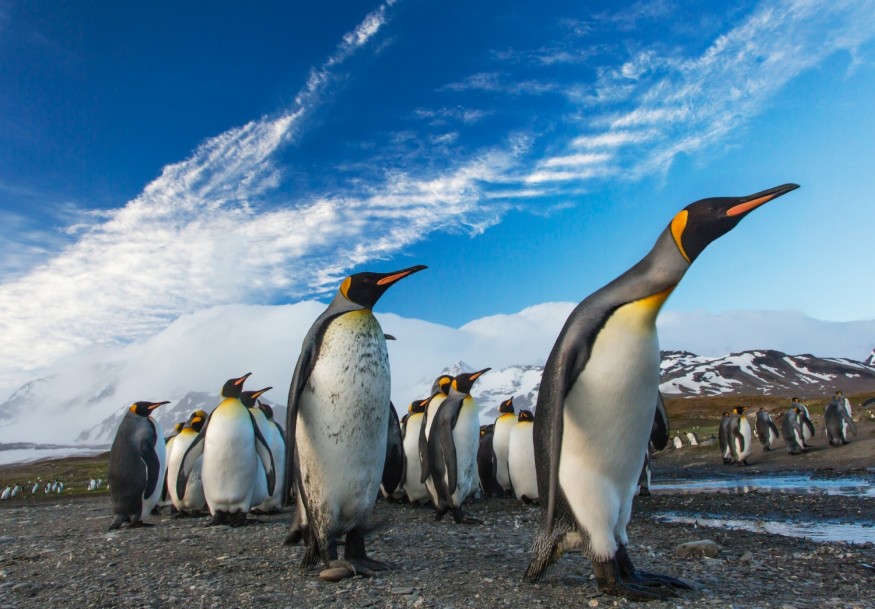Emperor penguins are endemic to the icy continent of Antarctica. For several decades, these wild animals have been recorded by scientists using floating ice as their breeding grounds, with the immediate land mass surrounding it as a place where they raise their young.
Just like other avians, emperor penguin chicks rely on their parents until maturity, in terms of feeding, care, and protection in general.
Although the Antarctica penguins are not critically endangered, human-induced climate change and global warming have threatened their habitats on the continent.
With atmospheric and ocean warming, glaciers, and ice sheets, which the flightless birds use, have melted at an unprecedented rate in recent years.
As a result, the emperor penguins are left with less floating ice to hold onto or seek refuge when hunting underwater.
Now, a study by scientists from the United Kingdom and France found a low record of Antarctica sea ice, leading to breeding failure in some emperor penguin West Antarctica colonies.
Researchers asserted that penguin chicks may have drowned amid melting ice in the region.
The findings come from the fact that while the animals can swim underwater, they can only breathe and last for several minutes, according to experts.
Emperor Penguin Mass Deaths

In the study published in the journal Communications Earth & Environment on Thursday, August 24, Peter Fretwell from the British Antarctic Survey in the U.K., along with other researchers, reported that the 2022 spring season saw a record-breaking low sea ice extent in Antarctica, a phenomenon that persisted all year round.
The largest regional negative anomaly was observed in the central and eastern part of the Bellingshausen Sea region, located west of the Antarctic Peninsula.
During November, this part of the icy continent incurred 100% loss of sea ice concentration. By the start of December 2021, the unprecedented sea ice melt exceeded the record in 2021, according to the researchers.
Emperor Penguin Breeding Failure
The research team involved in the study presented evidence of a "regional breeding failure" among the Antarctic emperor penguin colonies due to sea ice loss.
The findings were made possible using the images from the Sentinel-2 satellite. It showed that four out of five breeding sites in the regions incurred unsuccessful breeding during the 2022 breeding season.
Based on the Communications Earth & Environment study, members of the emperor penguin (Aptenodytes forsteri) species are reliant on sea ice throughout their life cycle.
These chunks of ice serve as their haven not only for breeding and raising their young, but also for foraging and mating.
Emperor penguins have been designated by conservation authorities as "Near Threatened." It is projected to experience a significant decline since the Antarctica sea ice starts to disappear in the next few decades due to climate change, according to the non-profit charity organization BirdLife International.
© 2025 NatureWorldNews.com All rights reserved. Do not reproduce without permission.





